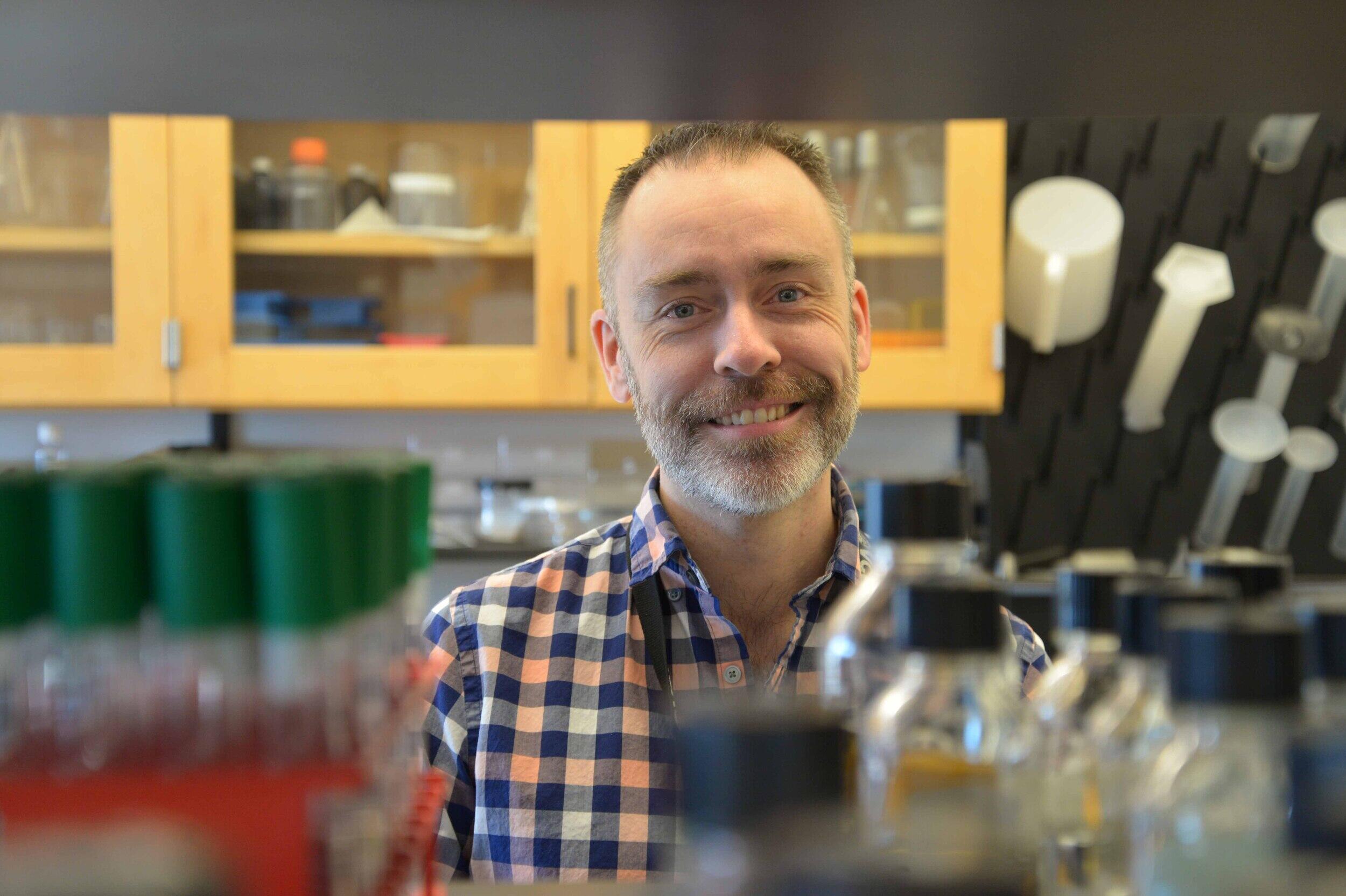
Jan. 9, 2020
VCU biology professor receives $1.3M grant to study membrane transport pathways in yeast
“We are interested in understanding the different ways that cells internalize material,” said Derek Prosser, an assistant professor in the Department of Biology.
Share this story
The National Science Foundation has awarded a $1.3 million grant to a Virginia Commonwealth University biology professor to study a newly discovered cellular pathway in yeast that could shed light on important aspects of how cells function.
Derek Prosser, Ph.D., an assistant professor in the Department of Biology in the College of Humanities and Sciences, received a five-year NSF CAREER Award for his study, “Regulation of clathrin-independent endocytosis by modulators of Rho GTPase function.”
“Cells use proteins at their surface for many reasons: to bring nutrients inside for growth, to sense and respond to changes in their environment, and to communicate with other cells. Each cell controls what proteins are at the surface by delivering new material through a process called exocytosis, and by removing existing material through the process of endocytosis,” Prosser said. “We are interested in understanding the different ways that cells internalize material.”
Most cells use a major pathway to bring material inside — called clathrin-mediated endocytosis — that involves the protein clathrin, but they also possess several other pathways that do not involve clathrin. The clathrin-dependent pathway is well-studied, but little is known about clathrin-independent pathways.
Prosser’s lab studies a new endocytic pathway in yeast that does not require clathrin. The work will aim to understand the molecular mechanisms of this pathway, learn why it is important for cells, and discover additional pathways for endocytosis.
This second pathway requires numerous proteins including Rho1, which regulates polymerization of the actin cytoskeleton and coordinates repair of the cell wall that protects yeast from damage. Rho1 undergoes cycles of activation and inactivation, and its activity can be restricted to specific sites within a cell. The relationship between Rho1 activity and location, and how these relate to its role in endocytosis, are poorly understood, according to the study’s abstract.
“Cells likely need multiple pathways for endocytosis in order to respond to a constantly changing environment and to accommodate a large variety of proteins at their surface,” Prosser said. “Importantly, some microbes and viruses ‘hijack’ different pathways to get inside of cells, and mutations in some proteins involved in endocytosis are linked to diseases such as cancer and Alzheimer’s disease. Understanding the different ways that cells perform endocytosis will therefore shed light on important aspects of cellular function, both in health and disease.”
The study is expected to provide new insights into the molecular machinery that controls clathrin-independent endocytosis, an important but poorly understood process in all eukaryotic cells — which include plant, animal and human cells.
“As we learn more about these different endocytic pathways, we eventually hope to find ways that they can be used for our benefit,” Prosser said. “There are a lot of exciting possibilities: blocking a pathway might help to prevent infection by microbes, and activating a pathway could be useful for targeted drug delivery.”
Subscribe to VCU News
Subscribe to VCU News at newsletter.vcu.edu and receive a selection of stories, videos, photos, news clips and event listings in your inbox.










